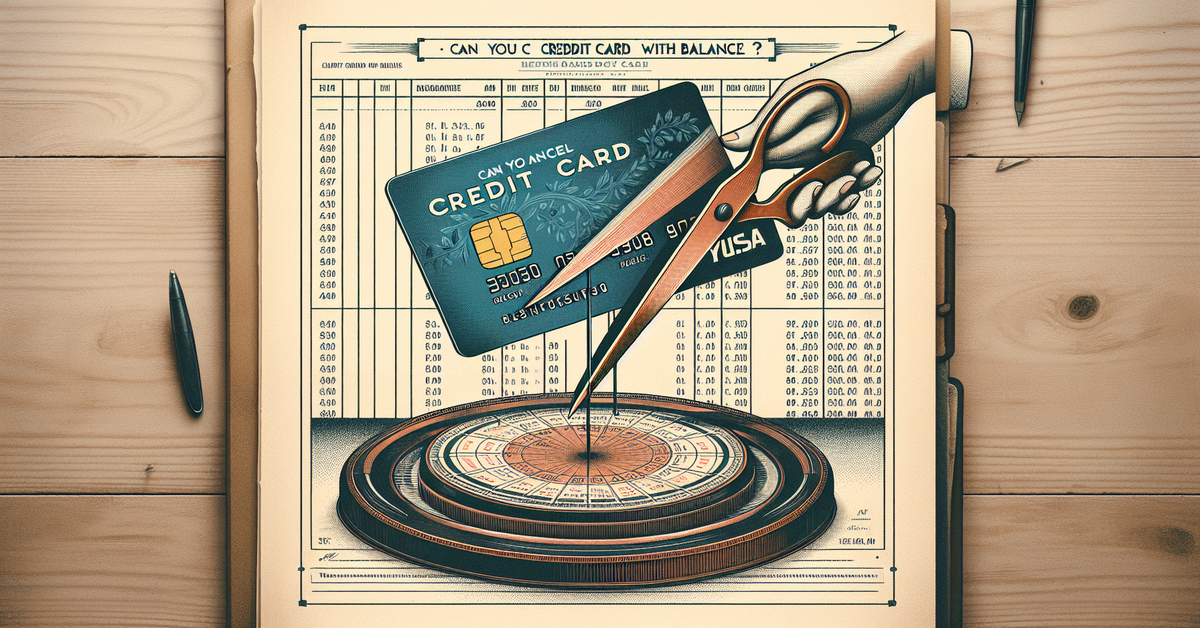If you're considering canceling a credit card with an outstanding balance, you might want to think twice. While it's possible to do so, the implications for your credit score and financial health can be significant. You could find yourself facing a higher credit utilization ratio, which might not be in your best interest. Before making a final decision, it's important to explore your options thoroughly. What steps should you take to manage your balance effectively while minimizing negative consequences?
Understanding Credit Card Balances
Understanding your credit card balance is vital, as it directly impacts your financial health and credit score. Your balance reflects the amount you owe, and keeping track of it helps you avoid overspending. If your balance is high relative to your credit limit, it could negatively affect your credit utilization ratio, a key factor in your credit score. Regularly monitoring your balance also helps you identify any unauthorized charges, ensuring your financial safety. If you're carrying a balance, making timely payments is essential to avoid interest charges and maintain a good credit standing. Always aim to keep your balance at a manageable level, as this practice not only protects your finances but also contributes to a healthier credit profile.
Consequences of Canceling a Card
Canceling a credit card, especially one with a balance, can have significant consequences for your credit score and overall financial health. When you cancel a card, you reduce your available credit, which can increase your credit utilization ratio. A higher ratio can negatively impact your score, making it harder to secure loans or favorable interest rates in the future. Additionally, canceling an old account can shorten your credit history, another factor that influences your score. If you're relying on this card for ongoing transactions, you might also face added stress managing your finances. Before making a decision, weigh these potential drawbacks carefully to guarantee you're prioritizing your financial stability and safety.
Options for Managing Your Balance
Managing a credit card balance effectively is essential for maintaining your financial health and avoiding negative impacts on your credit score. To start, consider paying more than the minimum payment to reduce your balance faster and save on interest. You might also look into transferring your balance to a card with a lower interest rate, which can ease your financial burden. Setting up a budget can help you allocate funds specifically for credit card payments, ensuring you prioritize this expense. Additionally, monitoring your spending habits can prevent overspending and keep your balance manageable. Finally, consider speaking with a financial advisor for personalized strategies that align with your goals, providing you with a safer path to financial stability.
Impact on Your Credit Score
Closing a credit card account with an outstanding balance can have a significant impact on your credit score, as it affects your credit utilization ratio and overall credit history. When you close an account, you're reducing your total available credit, which can increase your utilization ratio if you still carry balances on other cards. High utilization can negatively affect your score, making it harder to obtain loans or favorable interest rates in the future. Additionally, closing an account can shorten your credit history, especially if it's an older card, which is another factor that lenders consider. To maintain a healthy credit score, it's crucial to understand these implications before deciding to close a credit card with a balance.
Steps to Cancel Responsibly
Before taking action to cancel a credit card with a balance, it's important to contemplate a strategic approach that minimizes potential negative effects on your credit score. First, assess your balance and consider paying it down considerably or in full. This reduces your debt-to-credit ratio, which is essential for maintaining a healthy score. Next, check if you can transfer the balance to another card with lower interest rates. After addressing the balance, contact your issuer to formally request cancellation. Make sure to confirm any outstanding fees or remaining charges. Finally, monitor your credit report for any changes post-cancellation. By following these steps, you can cancel your card responsibly while safeguarding your financial health.



